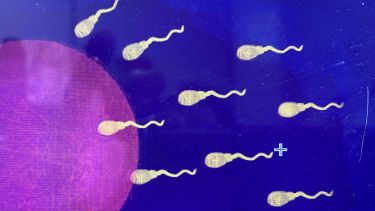Digital Donor Conception Study
Understanding informal donor conception in the digital age.
Dr Leah Gilman.

Mediated Reproduction: Understanding informal donor conception in the digital age
UK medical-regulatory discourses frame donor conception in a licensed clinic as the legitimate and safe way to enact donor conception and discourage conceiving with a sperm donor outside of medical institutions. And yet, growing numbers of people are building families this way, through digitally-mediated informal donor conception (DMIDC), facilitated via online platforms and social media groups.
The Mediated Reproduction will run for four years, beginning in May 2023 and will investigate perceptions and practices of DMIDC as way of exploring how the expansion of digital media technologies is shaping, and shaped by, changing reproductive norms and practices. It will analyse ‘official’ evaluations of DMIDC, the reproductive narratives of users and the digital platforms through which DMIDC is enacted. The study will provide urgently-needed knowledge of what, despite its delegitimised status, is probably now the most common form of UK donor conception. It will develop theoretical understandings of the relationship between digital media and reproductive practice, norms and imaginaries. Furthermore, findings from the project will move debates on DMIDC beyond the current ‘stalemate’ between policies which advise ‘just say no’ and the social reality of a rapidly growing reproductive practice.

iHuman
How we understand being ‘human’ differs between disciplines and has changed radically over time. We are living in an age marked by rapid growth in knowledge about the human body and brain, and new technologies with the potential to change them.
